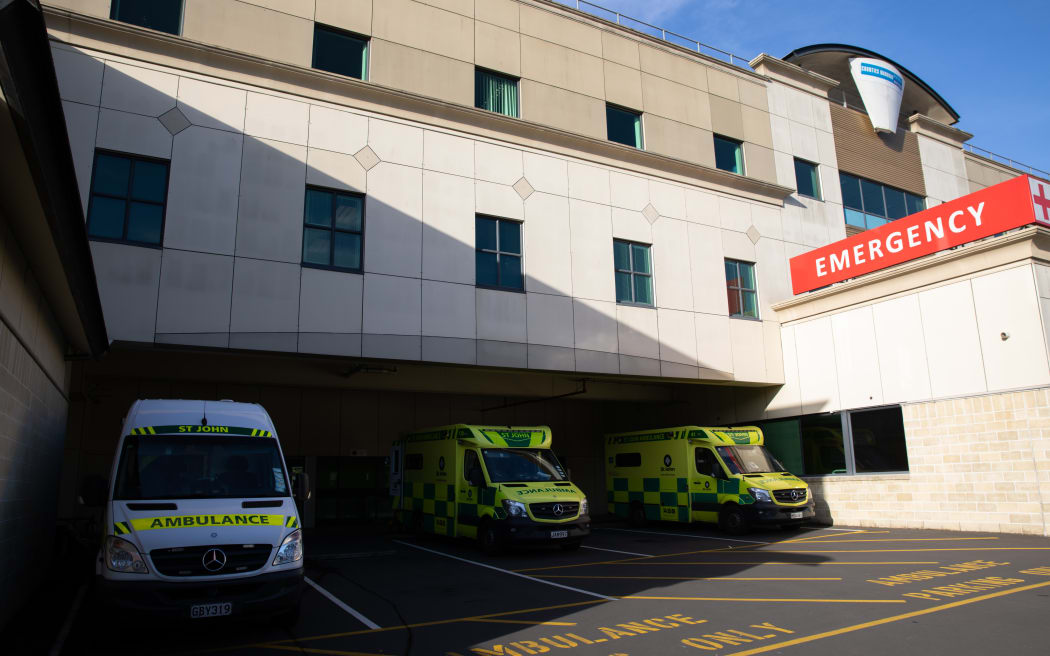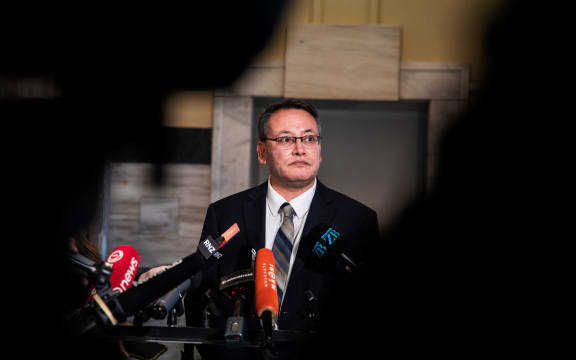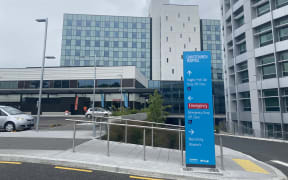
The Middlemore Hospital Emergency department Photo: RNZ / Dan Cook
Te Whatu Ora says it is reallocating money from other projects to fund security guards for hospitals while it reviews a Summer programme, but it will mean fewer guards.
Doctors and those working in hospital emergency departments are concerned as the funding for extra security guards ends.
As part of its 100-day plan, the government paid for 200 extra guards across some hospitals over summer, but the $5.7 million in funding finished on 29 February.
In a statement Thursday night, Health Minister Shane Reti said December's initiative addressed an urgent need.
He said Health NZ was "able to reallocate funding between now and 1 July 2024 to sustain an improved security presence".
The interim plan would mean a "slightly lower level of increase than the summer surge", he said, but it would provide additional support to frontline staff.
"Further planning will continue," Reti said.

Health Minister Shane Reti. Photo: RNZ / Samuel Rillstone
But doctors working in EDs said they needed the guards on a regular basis.
Violence and aggression were growing towards doctors, nurses and other emergency department teams, with many fearing for their safety.
The Australasian College for Emergency Medicine New Zealand chair Dr Kate Allan said the success of the guards had been mixed.
In some hospitals they were stationed outside of the departments' front doors, meaning they were slower to react, and some were not trained in deescalating aggression, she said.
"Staff are often having conversations with families and patients before security are involved so it's not that somebody gets a bit rude and we are calling security. Often we will be trying to de-escalate way earlier in the piece."
Despite that, the college was "incredibly disappointed" that the funding for the dedicated guards would not continue beyond summer.
Emergency departments tended to be busy year around and the rising aggression was having a "profound impact" on those working there, she said.
Many were choosing to cut their hours to cope, Allan said.
"These people are strong people who are coming to work and they're getting destroyed by the level of violence and aggression that they are getting exposed to."
Reti said he had directed HNZ Te Whatu Ora to report to him on future options.
But Te Whatu Ora chief of people Andrew Slater said the agency would only be able to decide what to do next once it had formally reviewed the programme.
That review was yet to take place.
"In the meantime, we have a programme of work underway to improve staff safety across our facilities, and we want to assure our staff that this is a high priority for Health NZ," he said in a written statement.
Slater maintained Te Whatu Ora had good feedback about the extra guards.
But he told RNZ's Morning Report some of the early response had also indicated the initiative "wasn't the right thing, necessarily, in all of those EDs; that they're looking at other types of resource that can deescalate".
Slater said emergency departments which had been given additional security to cope with a "summer surge" had been told they should contact Te Whatu Ora if they knew they had any other events between now and the end of July during which they might require additional security support.
"So what we want to do is make sure, if they need it, they can get it out of that central pool."
The other eight high priority EDs which had received between three and five additional security guards over the Christmas period had also been asked to give feedback on what they required, he said.
"We've committed to them that they can put on up to two to three guards more than what they would have had prior to this initiative, between now and the end of July."
He said some other programmes of work would be slowed down in order to make sure EDs could have "more than what they've previously had" in terms of security guard availability while the evaluation of the summer surge initiative was undertaken.
Te Whatu Ora was doing "as much as we can to make sure we've got the tools on the front-line" to improve staff safety, Slater said.
"Sadly, we've seen increasing aggression and violence to all of our staff across all our of our clinical settings for the last few years," he said.
"What we're hearing is that they feel safer at work where they've had that additional security presence."
Deescalation training was also being rolled out to all Te Whatu Ora staff across the country, he said.




